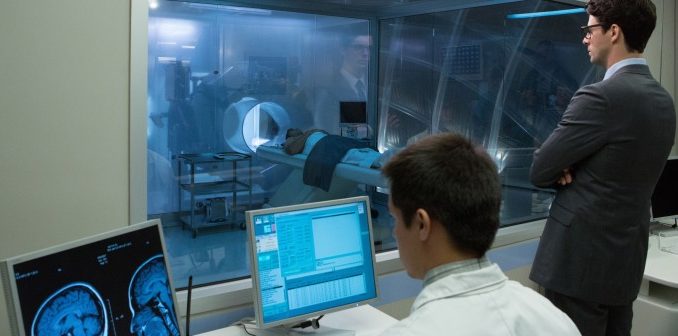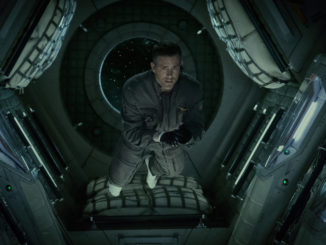
You’ve probably heard the phrase “Live each day as if it were your last.” The underlying premise of that philosophy is to not take time for granted. Maybe you have another 72 years to travel to Italy, or perhaps you’ll get hit by a bus next week and die never having left the city you were born in.
You just don’t know, and that not knowing–the reality that your time could end at any moment–is fuel that drives people to great accomplishment. Now. With a sense of urgency. Without mortality, would any of the great minds have achieved what they did in one lifetime? Would Leonardo DaVinci, Benjamin Franklin, or Steve Jobs have done as much in the years they had if they thought those years would never end?
That is just one of the very intriguing questions raised from the movie Self/less and my conversation with Dr. Charles Higgins about human consciousness and the ethical issues addressed by the movie:
I’m a fan of science, science fiction, Sir Ben Kingsley, and Ryan Reynolds, so I was pretty much sold on the premise of the movie Self/less the first time I saw the trailer. I’ll leave the reviews of the movie itself—dissecting the script, and analyzing the quality of the script or the performances of the actors to people more qualified…or at least people who do that for a living. Instead, I will focus on the scientific plausibility of the movie premise and the ethical quandaries it raises.
I don’t want to spoil anything, but I will provide a brief synopsis of Self/less so we’re on the same page about the science and ethics we’re talking about. This summary from IMDB describes the basic story:
“An extremely wealthy man, dying from cancer, undergoes a radical medical procedure that transfers his consciousness into the body of a healthy young man. But all is not as it seems when he starts to uncover the mystery of the body’s origin and the organization that will kill to protect its cause.”
The movie sparks two immediate questions. 1) Is it scientifically plausible to transfer one’s consciousness to a different host body? 2) What sort of moral or ethical issues are created from the quest to find a host body to use for such a transfer?
To explore these questions I had a very interesting conversation with Charles Higgins, PhD. Higgins began as an electrical engineer and eventually transitioned to neuroscience as a result of his fascination with the intersection of engineering and biology. Dr. Higgins is an Associate Professor in the Department of Neuroscience at the University of Arizona and leader of the Higgins Lab. Working with his team at Higgins Lab he was able to demonstrate interaction between the brain and a machine by creating a robot guided by the brain and eyes of a moth.
You can read the full story about my interview with Dr. Higgins on Forbes: Self/less Explores The Bounds Of The Human Mind And The Ethics Of ‘Self’.



Leave a Reply